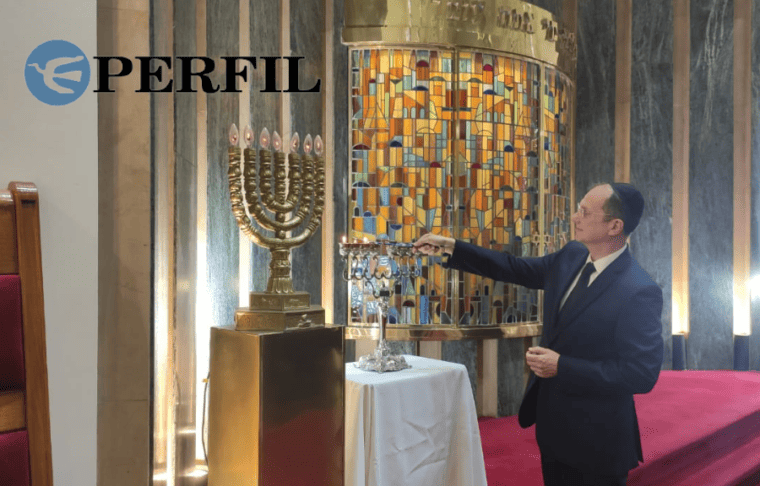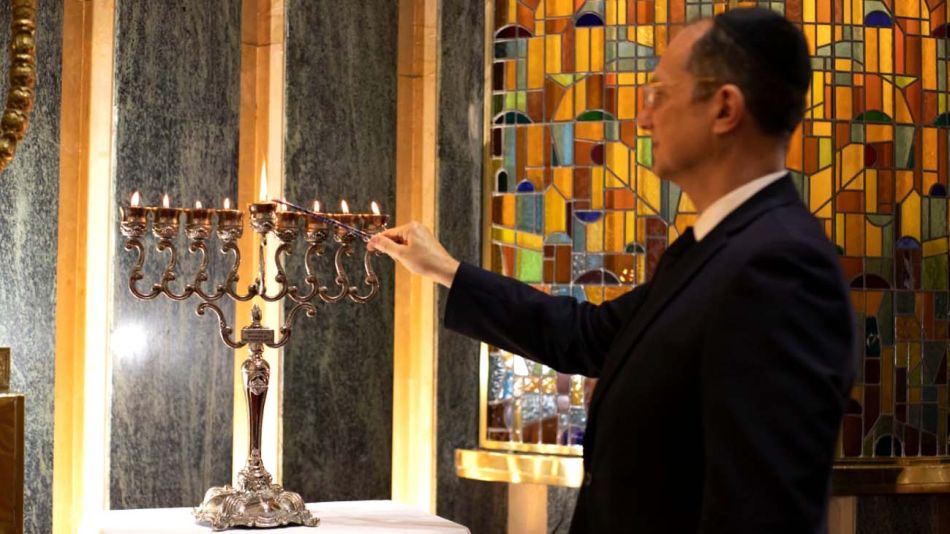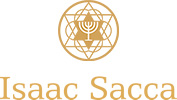Hanukkah: religious freedom is the first right

Article published in Perfil newspaper on November, 29 th 2021
From today, Monday, November 29th, until December 6th, 2021 we celebrate Hanukkah, the party of lights. In these days, we remember the heroic deed of the Maccabees, in their fight against the Hellenist Seleucid army.

From today, Monday, November 29th, until December 6th, 2021 we celebrate Hanukkah, the party of lights. In these days, we remember the heroic deed of the Maccabees, in their fight against the Hellenist Seleucid army.
Alexander the Great (356 BC – 323 BC) was a Macedonian emperor with a Hellenistic mind (his personal tutor was the most renowned philosopher in history, Aristotle, the epitome of Athenian culture). He conquered a vast territory, including Greece, Persia, and Egypt, and formed the largest empire of the time. When he died, his successors divided the empire: Ptolemy in Egypt, Seleucus in Persia, and Antigonus in Macedonia. After a series of conflicts, the Land of Israel, inhabited mainly by Jews, was left in the hands of the Seleucids.
Rosh Hashana, the day of social justice
In an attempt to maintain control of their empire and unify it, the Seleucids imposed a forced Hellenization. His logic was implacable: to achieve cultural and religious homogeneity. The objective was double: on the one hand, to keep the empire in order; on the other, to transmit the precious Hellenistic values to humanity.
The Hellenistic culture was certainly refined and sophisticated. Who could deny the wisdom of philosophers like Socrates, Plato or Aristotle? Who could avoid getting excited at the sight of the Parthenon? Who does not marvel at the great works of Homer or Sophocles?
However, the Hellenistic point of view had a flaw, beyond the differences that may be raised in the fundamental values. And that flaw was mortal: Hellenistic culture could not tolerate a human being outside of the Hellenistic culture. If someone was culturally different, he was already considered a barbarian. In other words: a person without civilization or culture.
In times of distress and uncertainty, religion can serve as comfort
That is why, the Seleucids tried to impose their culture on the Jews. They couldn’t understand that someone passionately decided to defend a different culture. For them, the superiority of the Greek mentality was evident.
However, the Jews, led by the Maccabees, resisted these attempts to be imposed ideas by force, defending freedom of conscience and worship.
The Hasmonean rebellion was not merely military, but a revolt in favor of human freedom. For this reason, its echo is still sounding: it is a call to all humanity to weigh the value of human dignity and respect for differences.
Pesach and freedom of expression
According to this perspective, we can say that Hanukkah is an affirmation of the right of each people, culture and religion to express themselves freely, autonomously and independently. In short: the celebration that each culture that populates planet Earth enriches human life.
* Isaac Sacca. Chief Rabbi of the Sephardic Community of Buenos Aires. Founder and president of Menora, World Organization for the Youth. Member of the Superior Rabbinical Academy of Jerusalem Iehavé Daat. Member of the Advisory Council of the Hispanic Jewish Foundation. www.isaacsacca.com
Source: www.perfil.com

